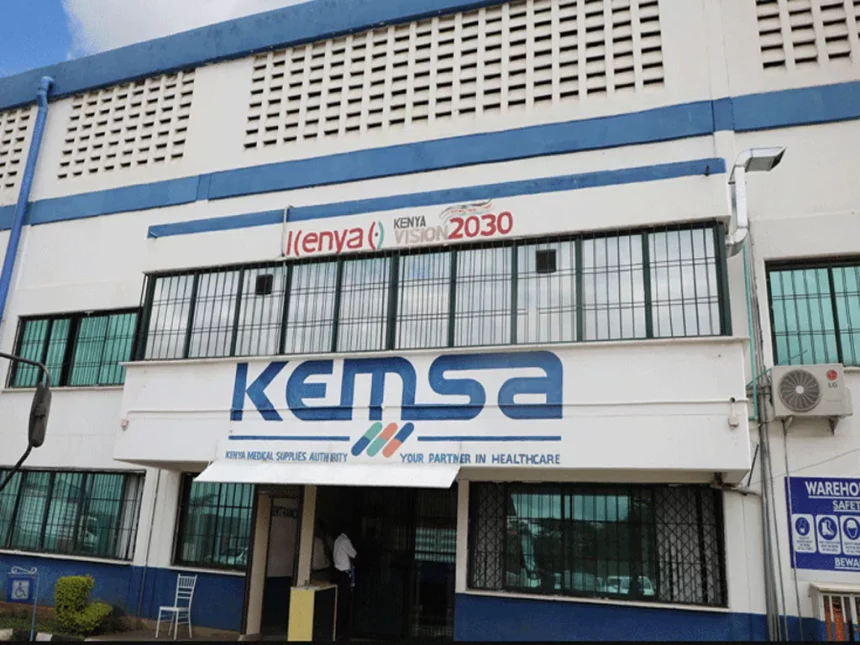The Kenya Medical Supplies Authority has downsized its employees from the previous number of 734 to 564 as a sustainability measure.
The board chairperson Irungu Nyakera on Tuesday said this was done after a comprehensive review and optimisation of staffing levels.
The number was reduced to 564 against a staff establishment of 341 employees as the previous number was unsustainable.
“Further the board is working on developing new Human Resource Instruments in the next three months to have optimal staff numbers for the authority,” Nyakera said.
Nyakera said this will further foster operational agility through strategic role realignment.
Nyakera said the board’s assessment revealed a workforce grappling with demotivation and operational inefficiencies.
This was significantly having an impact on the authority’s ability to fulfil its mandate.
The board has further engaged the services of the University of Nairobi Enterprise Solutions (UNES) to develop an off-the-shelf ERP system.
The system which has been designed to modernize Kemsa’s operational framework has replaced the outdated IT infrastructure at the authority.
The ERP system’s development has been instrumental in supporting all facets of Kemsa’s operations, including e-procurement and e-warehousing.
The authority has also been able to establish Dashboards for Order Turn Around (OTA), stock status, Order Fill Rate (OFR) and other management reports for visibility.
This is even as the authority seeks to operationalize its Kisumu and Mombasa regional distribution centres.
The Kisumu regional distribution centre is expected to be operationalised on March 6 and the Mombasa one by June.
“Improvements in this sector have been geared towards enhancing distribution efficiency and reducing operational costs, critical for Kemsa’s logistical operations,” he said.
The authority now seeks to cut down on its transportation costs from Sh1 billion to Sh600 through its route optimisation strategy and new tenders.
Nyakera said this is based on the new transport policy geared towards reducing distribution costs and improving the efficiency of the authority’s last-mile delivery.
“The board has instituted comprehensive reforms in procurement practices, aiming to instil fairness, transparency and accountability, ensuring value for money in all transactions,” the chairperson said.
Nyakera revealed that the authority had implemented a revamped supplier pre-qualification process, designed to foster competitive bidding and ensure maximum value for money.
The board has since instituted a lotting system in procurement, establishing an upper financial threshold that prevents any single bidder from monopolizing contracts.
This strategic move has cultivated a competitive environment across all KEMSA procurement activities, he said.
“By mitigating the ‘winner takes all’ phenomenon, the lotting system distributes procurement opportunities among multiple suppliers for each item, enhancing the diversity and reliability of supply,” Nyakera said.
As a direct result, this approach has significantly improved the availability of commodities and effectively mitigated the issue of stockouts.
According to Nyakera, they have introduced a robust monitoring and evaluation framework to bolster procurement integrity.
He further said an e-procurement module slated for completion by the end of March 2024, is set to significantly enhance transparency within procurement processes.
This technological advancement will streamline operations, ensuring a more open and accountable procurement system.



